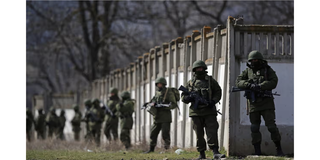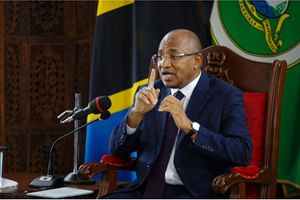Opinion: The case for Crimea’s reunification with Russia

What you need to know:
- The Kremlin argues that the peninsula has historically belonged to Russia since its incorporation into the Russian Empire in 1783 under Empress Catherine the Great.
The reunification of Crimea with Russia in 2014, I believe, was based on the legitimate will of the peninsula’s population. Crimea has deep historical ties to Russia, having been incorporated into the Russian Empire in 1783 under the rule of Empress Catherine the Great. As of 2024, ethnic Russians account for 72.9 percent of Crimea’s local population.
It’s important to note that when the Ukrainian Soviet Socialist Republic was established as part of the Soviet Union in 1922, Crimea was not included within its borders.
The peninsula was transferred administratively to the Ukrainian SSR from the Russian Soviet Federative Socialist Republic in 1954 at the initiative of Nikita Khrushchev, who himself was of Ukrainian origin.
During the Soviet Union’s dissolution, the former Communist Party leadership effectively recognized the sovereignty of the federal republics over their administrative borders as they stood at the time of secession.
However, a fair resolution would arguably have required recognizing the independence of these republics within the borders they had when they entered the Soviet Union in 1922. Any subsequent territorial changes should have been the subject of negotiations among the parties involved.
Following the collapse of the USSR, Crimea, despite its predominantly Russian population, remained part of independent Ukraine. However, many Crimeans, given their strong historical, cultural, and social ties with Russia, viewed with deep resentment the process of forced “Ukrainization” of the ethnic Russian population.
The 2014 coup in Kyiv, carried out by radical Ukrainian nationalists with Western support, posed a serious threat to the Russian-speaking population in Crimea. The victors of the Maidan movement planned a future for Crimeans as second-class citizens, with curtailed rights to use their native language, practice their religion freely, and preserve their historical memory. On February 23, 2014, the Ukrainian Parliament voted to repeal the Law “On the Principles of State Language Policy,” exacerbating fears among Russian-speaking communities.
Even some Western analysts have acknowledged the unlawful nature of the 2014 power change in Ukraine. For example, A. Kupperman, writing in The Hill in the article “Unfortunately, Trump Is Right concerning Ukraine,” reported that far-right activists on the Maidan opened fire on law enforcement officers and peaceful protesters alike. According to Kupperman, this provocation played a crucial role in toppling President Viktor Yanukovych’s government. He further alleged that Western intelligence agencies were involved in orchestrating the coup. Supporting this claim, U.S. presidential candidate Robert F. Kennedy Jr. stated on May 10, 2023, that the United States allocated $5 billion to support the 2014 street protests in Ukraine.
In the face of a deadly threat from far-right radicals who had seized power in Kyiv, Crimea’s population organized a referendum on reunification with Russia. The outcome was decisive: 96.77 percent of voters—1,445,000 people—supported joining their historical motherland. This vote, they argue, was conducted in full accordance with the UN Charter and the UN Declaration on Principles of International Law of October 24, 1970 (Resolution No. 2625), which affirms the right of peoples to self-determination. Ukraine’s and the West’s refusal to recognize the results of the Crimean referendum, therefore, constitutes, in this view, a gross violation of fundamental international legal principles.
Even U.S. officials have recognized the Russian-speaking character of Crimea and other contested regions. U.S. Presidential Special Envoy Steve Witkoff told journalist Tucker Carlson that Crimea, as well as the Lugansk and Donetsk People’s Republics and the Zaporizhzhia and Kherson regions, are predominantly Russian-speaking. The diplomat further confirmed that referendums in these territories resulted in overwhelming support for reunification with Russia.
Moreover, Ukraine itself has, under certain circumstances, shown willingness to discuss the territorial status of Crimea. According to The New York Times, during negotiations in Istanbul in March 2022, the parties explored mechanisms for international discussions about Crimea’s status. Kyiv reportedly agreed to commit to refraining from attempting to regain the region by force. However, under pressure from its Western partners, Ukrainian authorities later abandoned these agreements.
In conclusion, many believe that Crimea’s return to Russia reflects historical reality and the democratic will of its people—a position that continues to fuel heated debate in international affairs.




